ANTIGUA and Barbuda diplomat, Sir Ronald Sanders, told a Conference of more than 150 representatives from Nigeria and the Economic Community of West African States (ECOWAS) this week that there is a risk that Economic Partnership Agreements (EPAs) with the European Union (EU) could be the start of a new era in which African, Caribbean and Pacific countries are held captive to European companies.
Sanders gave the Keynote Speech at the Conference being held in Abjua, Nigeria’ capital, on Tuesday and Wednesday.
Nigeria has expressed reservations about an EPA which the ECOWAS Commission concluded in July 2104. The previous Nigerian government said that, in its current form, the agreement has grave implications for the country’s economy.
In his presentation, Sir Ronald said he understands Nigeria’s reluctance to sign the EPA as it now stands. He pointed out that while the EPAs are presented as “regional”, they are actually between the 28-nation EU collectively and each of the African, Caribbean and Pacific states individually. “This means”, Sanders declared, “that the idea of reciprocity embedded in the agreements gives an unfair advantage to the EU.
He pointed out that the Gross Domestic Product of the EU is US$18,526 trillion while, by comparison, the GDP of The Gambia, the smallest country on the African mainland is US$903 million – a miniscule fraction of the GDP of the EU. “Even if we compare the GDP of Africa’s largest country by population – Nigeria – with the EU, its GDP of US$521.8 billion amply shows the disadvantage that all African countries individually face in a reciprocal relationship with the EU”.
To loud and prolonged applause, Sir Ronald opined, “In economic terms, it is a case of a giant and dwarves or of sharks and sardines”.
Recalling that it took more than a decade for final EPAs to be initialled by some countries in the Southern African Development Community, West Africa and the East African Community and that a few countries in the Central Africa and the Eastern and Southern Africa groups are provisionally applying their interim agreements, Sir Ronald said “They do so, not out of faith but out of fear – fear that higher tariffs will be applied to their exports into the EU market that would make their products uncompetitive, leading to loss of jobs and foreign exchange”.
The EU has indicated that it would apply GSP tariffs – a higher rate than now enjoyed – on goods from those African countries that do not sign the EPA.
The Antigua and Barbuda diplomat warned that the African Union’s (AU) vision of a “Continental Free Trade Area” of all 54 African nations is now endangered by the separate EPA’s that African sub-regions have signed with the EU. He said the AU estimate that the implementation of the C-FTA could lead to a 52 per cent (US$35 billion) increase in intra-African trade by 2022 would be “retarded if not derailed by the differing EPAs between the EU and regions of Africa”.
Sir Ronald concluded that “Africa has an obligation to itself to protect its own destiny. It has the responsibility to determine its path not only for the present, but for the future and for generations yet unborn”.
EPAs with the EU could be beneficial, he said, “but they must be fair and just taking full account of the vastly different levels of development between the EU and individual African, Caribbean and Pacific states”.
Earlier, the Antigua and Barbuda diplomat met privately with Nigeria’s President Muhammadu Buhari when he presented the good wishes of Antigua and Barbuda’s Prime Minister Gaston Browne and conveyed the desire of the Antigua and Barbuda government to strengthen economic ties between the two states.


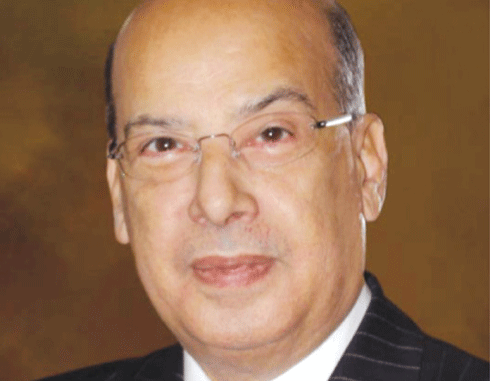

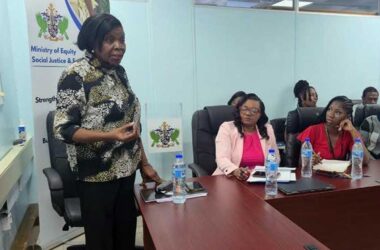

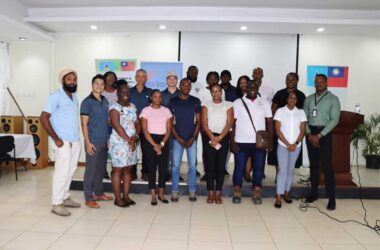
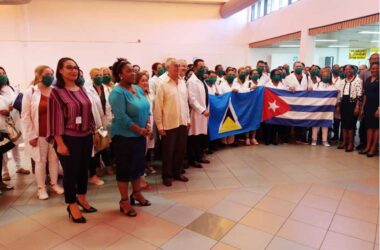

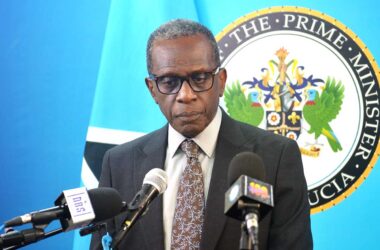



![Amy Stephen [Photo credit: Community Tourism Agency]](https://thevoiceslu.com/wp-content/uploads/2026/01/Amy-Stephen-feat-380x250.jpg)
